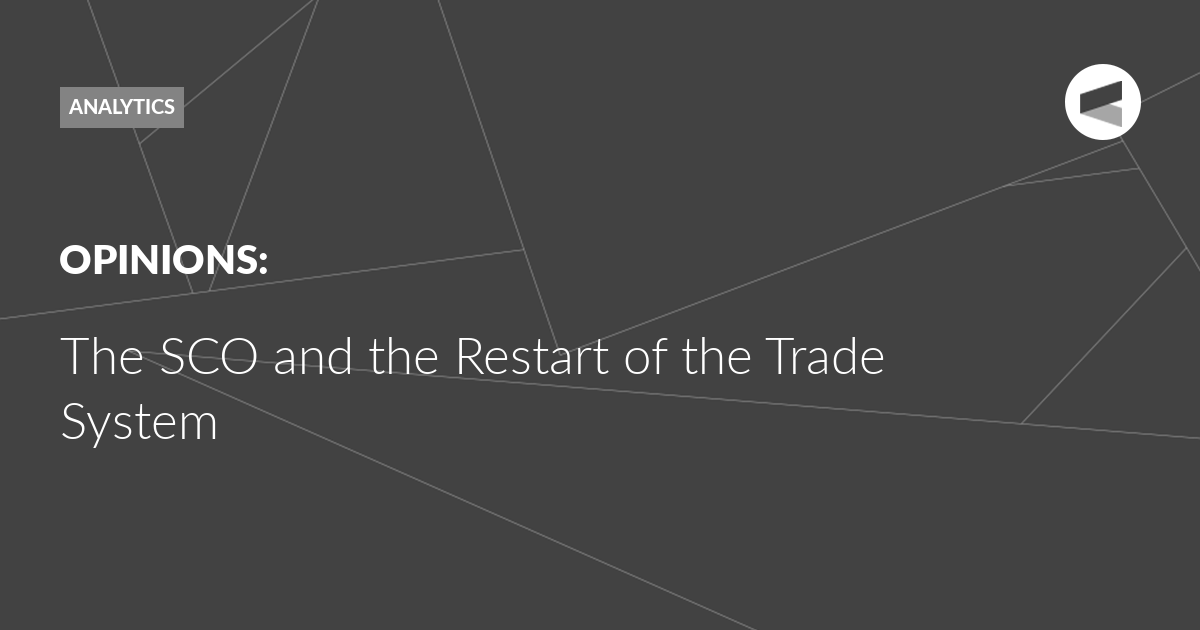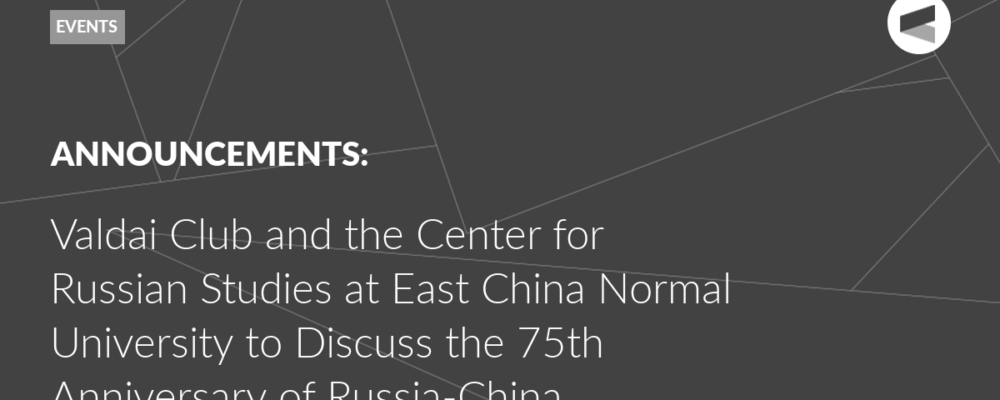The SCO understands existing difficulties and is taking steps to systematise multilateral cooperation, developing common goals and objectives, as well as strengthen the mechanisms for their achievement by the organisation’s members.
Thus, in 2023, the SCO Economic Development Strategy for the period up to 2030 was approved. In 2024, following the results of Kazakhstan’s chairmanship, an Action Plan for its implementation was adopted. The institutional structure of the organisation is developing. The countries have decided to establish a Conference of the Heads of Antimonopoly Agencies of the SCO Member States, which in the long term should contribute to increasing the effectiveness of international cooperation in ensuring fair and transparent economic partnerships between people and organizations within the SCO member states.
In order to strengthen the resource potential for the implementation of joint projects, work has continued on the creation of the SCO Investment Fund, as well as consultations on the creation of the SCO Development Bank and the SCO Development Fund (Special Account). Of serious interest is the launch of the Investors’ Association of the SCO Member States, the regulations of which have been approved by the members. There is a cautious hope that the work of the said Association will be synchronised with the efforts of the SCO Business Council and will lead to an increase in the systemic participation of business in cooperation processes within the SCO.
The solution to these problems will be the focus of China’s presidency of the SCO: China that has taken the “reins” from Kazakhstan. In accordance with the Chinese initiative presented during the SCO Astana summit, the next year of the organisation’s work will be the “Year of Sustainable Development of the SCO”. As Vice Minister of Foreign Affairs of the PRC Sun Weidong noted at the official press conference in connection with the beginning of the Chinese presidency, “China will carry out a series of cooperation initiatives and actions in the eight key areas of the Global Development Initiative put forward by President Xi Jinping, including poverty reduction, food security, public health, financing for development, climate change and green development, industrialisation, digital economy and connectivity.”
The first ministerial meeting held under the Chinese chairmanship was the meeting of SCO Ministers responsible for foreign economic and foreign trade activities, on fair trade and sustainable development – in the area of trade and investment. The emphasis is on “restarting” the existing multilateral trading system, countering protectionism and sanctions policies, as well as increasing cooperation in the field of digital technologies and creative industries.
During the subsequent meeting of the Council of Heads of Government of Member States of the Shanghai Cooperation Organisation under the Chinese chairmanship on October 16, 2024, the relevant priorities were enshrined in the final Communique. “The Heads of Delegation consider it important to continue joint efforts to counter protectionist trade measures that are contrary to WTO rules and regulations, as well as to continue working on strengthening the rules-based WTO, a non-discriminatory, open, equitable, inclusive and transparent multilateral trading system, based on the WTO. They also oppose protectionist actions, unilateral sanctions and trade restrictions that undermine the multilateral trading system and impede global sustainable development.” the document adopted at the end says.
The Joint Communique also sets out a number of instructions. The heads of delegations welcomed the establishment of the SCO Investors Association and instructed the authorised bodies of the SCO Member States to take measures to establish the practical work of this cooperation mechanism. In addition, “the heads of delegations instructed the authorized Ministries and Departments of the Member States to intensify consultations on the establishment of the SCO Development Bank, the SCO Development Fund (Special Account) and, in the format of the interested parties, the SCO Investment Fund.”
The SCO ministers for foreign economic activity were instructed “to accelerate the establishment of the activities of the Special Working Group on Climate Change, including the adoption of the relevant Regulation”. They noted the proposals for the development of a draft agreement between the governments of the SCO Member States on cooperation in the field of climate change, as well as on the creation of the SCO Database on Innovative Environmental Technologies.” In the digital area, it is worth highlighting the proposal supported by the heads of delegations to develop a draft programme for the cooperation of the SCO member states in the sphere of electronic commerce. This will systematise the interaction of partners in the organisation and concentrate efforts on a very promising area in the context of strengthening business ties. The development of a proposal to create a Database of Investment Projects in the SCO Member States’ Industry, as well as the consistent implementation of the SCO Member States’ Roadmap for a Gradual Increase in the Share of National Currencies in Mutual Settlements, will also contribute to improving the situation in this area.
As for the “global dimension” of the SCO, the final document of the meeting noted that “The Heads of Delegations reaffirmed that the Member States intend to further develop cooperation in the spheres of politics and security, trade, economy, finance and investment, and cultural and humanitarian ties in order to build a peaceful, safe, prosperous and ecologically clean planet Earth to achieve harmonious coexistence of man and nature.” Among the steps aimed at implementing the relevant SCO initiatives, The Heads of Delegation reaffirmed the intention of the Member States to promote the proposal for the adoption of a Resolution by the UN General Assembly in connection with the SCO Initiative “On World Unity for a Just Peace, Harmony and Development”.
Russia’s current priorities in relation to the development of cooperation within the SCO were reflected in the speech of the Chairman of the Government of the Russian Federation Mikhail Mishustin at a meeting of the Council of Heads of Government. In particular, he emphasized the direct link between the development of the economy and the creation of Greater Eurasia. The Prime Minister also highlighted the following key topics:
• ensuring transport connectivity and building reliable and efficient logistics routes, including international transport corridors,
• decarbonisation of transport and digital transformation of this sector,
• increasing the share of national currencies in mutual settlements and creating an independent payment and settlement mechanism for the SCO,
• financial support for SCO project activities,
• achieving technological sovereignty and increasing industrial cooperation,
• digitalisation of economic sectors,
• energy security,
• development of humanitarian ties.
It can be noted that the Russian agenda is very broad and partially goes beyond the current programme of interaction within the organisation. Its successful implementation requires, in turn, advancing work on the following limitations:
• Insufficient operationalisation (setting applied tasks) in relation to top-level and upper-level decisions.
A possible solution is to increase the inclusiveness of cooperation and include the business and academic communities in the development of official decisions;
• Limited effectiveness of the systemic participation of the business community in cooperation within the SCO.
A possible solution is to develop a mechanism for recommendations from the SCO business community to the organisation’s management using the experience of the Business Twenty (B20) and the BRICS Business Council;
• The influence of third parties on payments and settlements within the framework of the foreign economic activity of economic operators in the SCO member countries.
A possible solution is to create our own settlement instruments using multilateral clearing instruments in the leading currencies of the SCO member countries, cryptocurrency stablecoins tied to a wide range of values (from among goods and services), the use of countertrade instruments, as well as the development of trading house mechanisms. For this purpose, the experience of the EAEU can be used, the Business Council of which has developed a corresponding concept.
In addition, the promotion of interaction in the following areas will contribute to increasing the institutional effectiveness of the SCO:
• exchange of experience and formation of community networks in key areas of cooperation with leading multilateral institutions of international cooperation (MIIC), such as the EAEU, BRICS, CIS, ASEAN, etc., and their business formats – Business Councils. Thus, “business integration” could form the basis of the Greater Eurasia Business Platform, ensuring increasing returns on the scale of business cooperation;
• harmonisation and achievement of regulatory convergence with leading partner MIICs. This will help reduce transaction costs and form a consolidated economic space in Greater Eurasia.
In conclusion, I would like to once again refer to the Astana Declaration and Joint Communique, which contain the basis for consolidating the efforts of all stakeholders in the development of the SCO region. “The Member States emphasise the importance of harnessing the potential of countries in the region, international organisations, and multilateral associations to foster a space of extensive, inclusive, mutually beneficial, and equitable interaction within the SCO region based on international law, mutual respect, and the consideration of national interests.” Let it be so.
Read also ‘Globalise It’: The SCO and the Future of the Economic Agenda in the Organisation’s Globalisation
The Valdai Discussion Club was established in 2004. It is named after Lake Valdai, which is located close to Veliky Novgorod, where the Club’s first meeting took place.
Please visit the firm link to site






